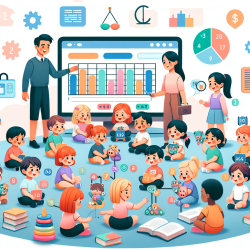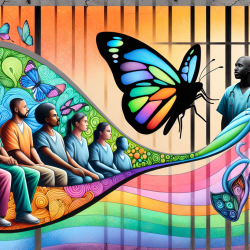Natural disasters often bring about significant challenges, especially for vulnerable populations such as mothers with young children. In rural Pakistan, these challenges are compounded by sociocultural factors that influence breastfeeding practices. Understanding these factors can empower practitioners to provide better support and improve maternal and child health outcomes during crises.
The Importance of Breastfeeding During Disasters
Breastfeeding is a critical practice that provides optimal nutrition and immune protection to infants, particularly during emergencies when access to clean water and safe food may be compromised. The World Health Organization (WHO) highlights that breastfeeding can save the lives of over 820,000 children annually, especially during natural disasters.
Sociocultural Factors Affecting Breastfeeding
A recent study conducted in the disaster-affected villages of Chitral, Pakistan, identified several sociocultural factors that either facilitate or hinder breastfeeding practices among internally displaced mothers. These include:
- Facilitators: Informal support from family and community, formal support from healthcare units, cultural norms encouraging breastfeeding, and spiritual practices.
- Barriers: Lack of privacy, cultural beliefs and practices that discourage exclusive breastfeeding, covert oppression, and inadequate healthcare support.
Facilitators of Breastfeeding Practices
Informal Support: Family members and neighbors play a crucial role in providing nutritional guidance and emotional support to breastfeeding mothers. This informal network helps mothers cope with the stress of displacement and maintain their breastfeeding practices.
Formal Support: Healthcare units offer essential services such as nutritional guidance and medical treatment that help re-establish breastmilk supply. Mobile health teams can be particularly effective in reaching isolated communities.
Cultural Norms: In many Pakistani villages, breastfeeding is a cultural norm that encourages mothers to continue the practice despite challenges. This cultural acceptance promotes gender equality in child-feeding practices.
Spiritual Practices: Spiritual healing and prayers are integral to many communities and can provide mental relaxation and social support to mothers during stressful times.
Barriers to Breastfeeding Practices
Lack of Privacy: Overcrowded living conditions in relief camps often leave mothers without private spaces to breastfeed comfortably. This lack of privacy can deter mothers from continuing to breastfeed.
Cultural Beliefs: Some cultural beliefs promote the use of breastmilk substitutes like cow's milk or tea for infants, which can undermine exclusive breastfeeding practices.
Covert Oppression: Gender-based expectations and societal norms can limit women's autonomy and ability to seek necessary support for breastfeeding.
Inadequate Healthcare Support: Limited access to healthcare services in disaster-affected areas can prevent mothers from receiving the guidance and resources needed to sustain breastfeeding.
Recommendations for Practitioners
Practitioners working with disaster-affected communities can implement several strategies to enhance breastfeeding support:
- Create women-friendly spaces within relief camps that offer privacy for breastfeeding.
- Engage local spiritual leaders to promote breastfeeding as a culturally accepted practice.
- Provide targeted education campaigns to dispel myths about breastfeeding substitutes.
- Establish mobile health clinics that offer accessible support and resources for breastfeeding mothers.
- Advocate for policies that prioritize maternal health and privacy needs in disaster response plans.
Conclusion
The study underscores the importance of understanding sociocultural dynamics when supporting breastfeeding mothers in disaster-affected areas. By addressing both facilitators and barriers, practitioners can empower mothers to continue breastfeeding during challenging times, ultimately improving health outcomes for both mothers and their children.
To read the original research paper, please follow this link: Sociocultural Factors Affecting Breastfeeding Practices of Mothers During Natural Disasters: A Critical Ethnography in Rural Pakistan










